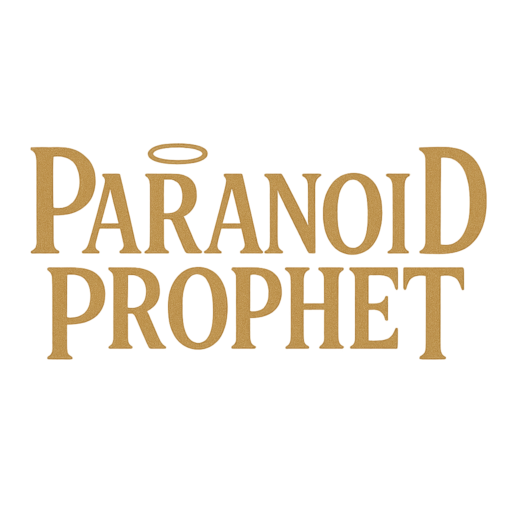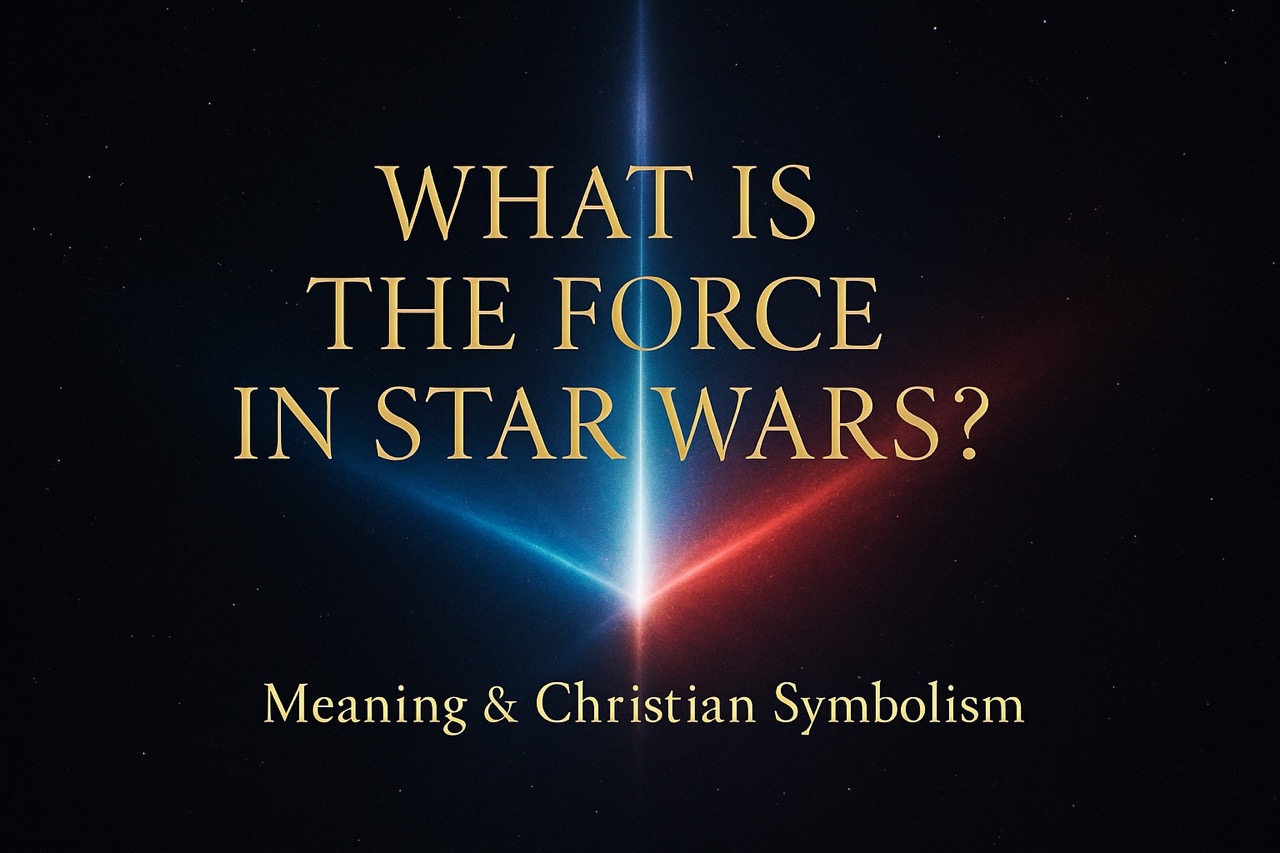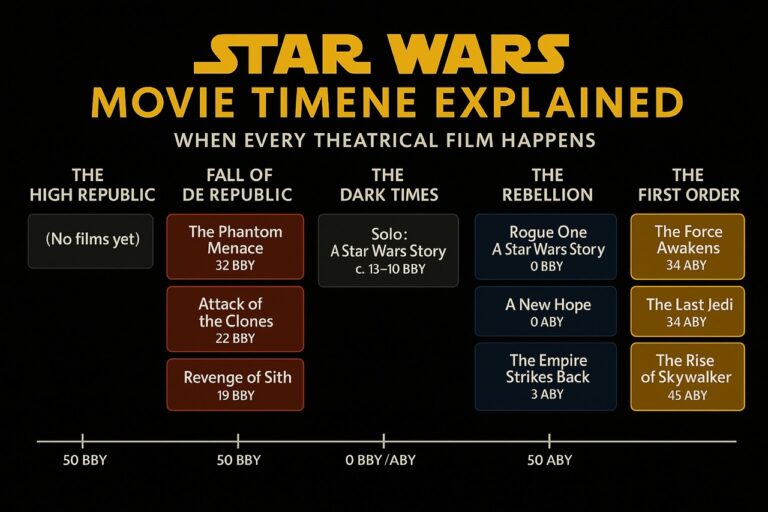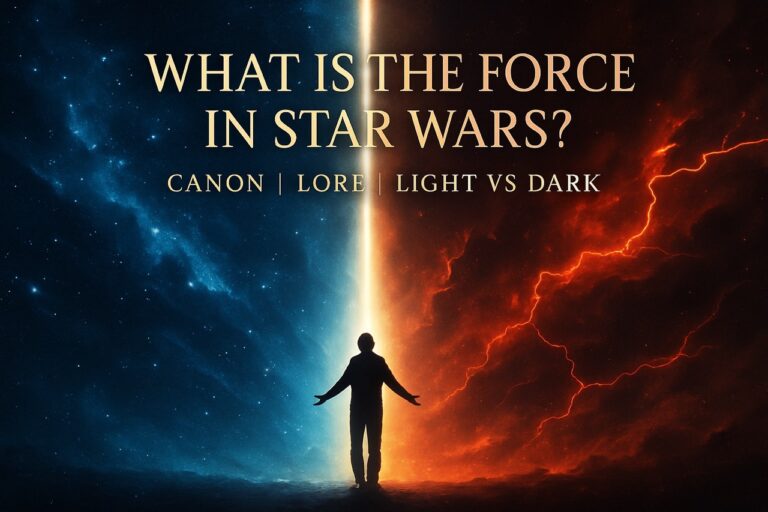What is the Force in Star Wars? It surrounds us. It penetrates us. It binds the galaxy together. But is this fictional mysticism — or does it echo something eternal?
This article explains the canon meaning of the Force in Star Wars and draws rich connections to Christian themes like the Holy Spirit, messianic prophecy, redemption, and the cosmic battle between light and darkness.
🌌 What Is the Force in Star Wars?
In Star Wars lore, the Force is “an energy field created by all living things.” It flows through the galaxy, connects all beings, and empowers Jedi and Sith alike to perform miraculous feats.
Obi-Wan Kenobi once explained:
“The Force is what gives a Jedi his power. It’s an energy field created by all living things. It surrounds us and penetrates us; it binds the galaxy together.”
The Force manifests in two aspects:
- The Light Side promotes selflessness, peace, healing, and harmony.
- The Dark Side thrives on fear, anger, aggression, and domination.
Jedi strive to follow the will of the Force — a kind of moral guidance embedded in the galaxy’s fabric. In contrast, Sith seek to control the Force for personal gain and power.
From Anakin Skywalker’s tragic fall to Rey’s spiritual awakening, the Force plays a key role in every major arc. It guides, tests, and ultimately redeems its users.
Despite its influence, the Force is not a personal deity. It lacks justice, emotion, or grace. It’s a powerful metaphor — not a person who knows or loves.
👉 Read the full Force Lore breakdown here
Explore its metaphysical roots, iconic teachings, and why this fictional energy echoes something real.
✝️ Christian Symbolism in the Force
Though George Lucas drew from Eastern mysticism and mythology, the Force still reflects biblical concepts in unexpected ways. Let’s explore a few key parallels:
1. Is the Force Like the Holy Spirit?
The Force is invisible, ever-present, and guiding — similar to the Holy Spirit:
“The Helper, the Holy Spirit… will teach you all things and bring to your remembrance all that I have said to you.” (John 14:26)
“For all who are led by the Spirit of God are sons of God.” (Romans 8:14)
However, the similarity ends there. The Holy Spirit is personal — He convicts, comforts, teaches, and indwells. The Force, in contrast, is impersonal and morally neutral.
2. The Chosen One and Messianic Prophecy
Anakin Skywalker is called the “Chosen One,” prophesied to bring balance. This mirrors messianic hopes found in Scripture — but ultimately, Anakin fails.
Compare this to Isaiah 53, where Jesus — the true Chosen One — fulfills prophecy through sacrifice and obedience.
3. Darth Vader’s Redemption and Biblical Grace
Vader’s return to the light echoes the story of the Prodigal Son (Luke 15). His change is powerful. But unlike the biblical narrative, Star Wars doesn’t show a redeemer who bears the cost — only a moment of regret.
Christianity teaches that grace redeems us not because of merit, but because of Christ’s sacrifice (Romans 5:8).
4. Anakin’s Fall and the Temptation of Pride
Anakin’s descent begins with pride, fear of loss, and a hunger for control — much like the fall of Adam and Eve in Genesis 3. It’s not ignorance, but a desire to be like gods that leads to corruption.
5. Moral Clarity: Good vs Evil
Jedi speak of the dark side and the light — a binary moral framework. Scripture echoes this with deep conviction:
“Woe to those who call evil good and good evil.” (Isaiah 5:20)
While the Force allows balance, the Bible calls for holiness, not harmony between light and dark.
🧠 Where Star Wars Gets It Right — and Wrong
✅ What Star Wars Gets Right
- The universe has a moral framework.
- Evil corrupts and tempts.
- Redemption is possible for the fallen.
- Sacrifice carries redemptive weight.
❌ What the Force Gets Wrong
- The Force is not relational; it cannot love.
- There is no grace — only equilibrium.
- Redemption in Star Wars is self-earned, not received.
Although the Force reflects fragments of truth, it lacks what Christianity centers on: a cross, a Savior, and undeserved grace.
The gospel doesn’t tell us to balance good and evil — it calls us to be made new in Christ.
📖 Key Bible Verses Referenced
- John 14:26 – The Holy Spirit teaches and reminds
- Romans 8:14 – Spirit-led identity as God’s children
- Luke 15:11–32 – The Prodigal Son returns
- Isaiah 5:20 – Moral clarity between good and evil
- Genesis 3 – The fall through pride
- Isaiah 53 – The suffering servant and true Messiah
📚 Recommended Reading on Star Wars and Christian Theology
🔹 Exploring the Force and Spiritual Themes
- The Irresistible Force of ‘Star Wars’: 3 Popular Approaches
An exploration of different interpretations of the Force, including allegorical connections to biblical end-time prophecies. The Gospel Coalition
🔹 Understanding the Holy Spirit and Christian Doctrine
- Who is the Holy Spirit?
An in-depth look at the identity and role of the Holy Spirit in Christian theology. GotQuestions.org - Isaiah 53 – The Suffering Servant
A comprehensive study of Isaiah 53, exploring its significance in understanding the Messiah’s role in Christianity. Blue Letter Bible+1Blue Letter Bible+1 - What Is Grace?
An article explaining the concept of grace in Christian theology and its implications for believers. Oneplace
🔹 Cultural Engagement and Mythological Frameworks
- Engaging Cultural Christianity with Pastor Dean Inserra
Insights into how Christians can engage with cultural narratives while maintaining theological integrity. Focus on the Family+1Focus on the Family+1
🔗 Related Reading
- Jesus in Revelation 1 – Eyes Like Fire
- Was Jesus a Liar? Examining the Evidence
- Messianic Prophecies of Jesus the Redeemer
- Redemption and Resurrection in Dragon Ball Z
🪐 Conclusion: The Fiction That Echoes Truth
The Force is fantasy — but its themes stir something real. The longing for guidance, balance, and redemption is embedded in our spirit because we’re made to seek the true Light.
Jesus isn’t just a Force wielder — He’s the Light of the World (John 8:12).
And unlike the Force, He knows your name.
🙋♂️ Frequently Asked Questions
❓ What is the Force based on in Star Wars?
A: George Lucas created the Force as a fictional spiritual power inspired by a mix of Eastern religion, mysticism, mythology, and Joseph Campbell’s Hero’s Journey. While it borrows from spiritual archetypes and universal moral struggles, the Force is not derived from Christian theology and lacks the personal nature of God.
❓ Is the Force like the Holy Spirit in Christianity?
A: Not exactly. The Force in Star Wars is an impersonal energy field that can be used for both good and evil. The Holy Spirit, in contrast, is a divine person — part of the Trinity — who guides, comforts, convicts, and empowers believers. The Force suggests balance; the Holy Spirit brings transformation and sanctification.
“The Spirit himself testifies with our spirit that we are God’s children.” — Romans 8:16
❓ Was Anakin Skywalker meant to represent Jesus?
A: Anakin Skywalker is portrayed as a “Chosen One” in Star Wars, prophesied to bring balance to the Force. This mirrors messianic expectations found in Scripture, but Anakin ultimately fails, falls into darkness, and is only partially redeemed. His arc reflects human longing for a savior but lacks the perfection, love, and sacrifice of Jesus Christ, the true Messiah, who fulfills prophecy completely.
“He was pierced for our transgressions… and by His wounds we are healed.” — Isaiah 53:5
❓ Does Star Wars promote Christian values?
A: Star Wars includes themes that align with Christianity — such as redemption, sacrifice, resisting evil, and believing in something greater. However, its worldview is more pantheistic and dualistic, lacking the moral clarity, grace, and divine relationship central to the gospel of Christ.
❓ Why do so many people find spiritual meaning in Star Wars?
A: Because the story taps into universal truth. The struggle between light and darkness, the longing for redemption, and the search for purpose all echo the biblical narrative. Star Wars points to something bigger — but only Scripture reveals the full picture.
A: Anakin is a false messiah — he fails and is redeemed. He mirrors Jesus only symbolically. The true Messiah saves perfectly, not partially.




Generational Star Wars Memes – From Jedi Duels to Discourse